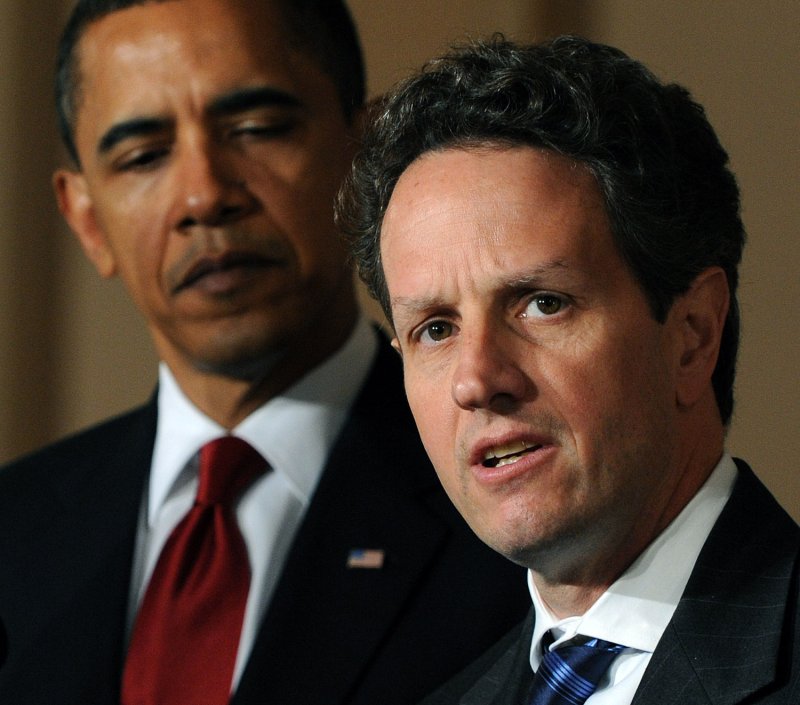Treasury Secretary Timothy Geithner and U.S. President Barack Obama announce tax reform plans intended to close loopholes and tax havens in the Grand Foyer of the White House in Washington on May 4, 2009. (UPI Photo/Roger L. Wollenberg) |
License Photo
WASHINGTON, May 14 (UPI) -- U.S. Cabinet officials revealed changes to a foreclosure prevention plan, such as incentives for lenders helping borrowers even if they lose their homes.
The $75 billion Making Home Affordable program focuses on paying lenders to work with at-risk borrowers to modify their loans to more affordable levels. Changes announced Thursday by Treasury Secretary Tim Geithner and Housing and Urban Development Secretary Shaun Donovan would allow lenders to be eligible for payment even if borrowers lose their homes through either short sales or deeds in lieu of foreclosure in instances when borrowers don't qualify for loan modification.
To help shield loan servicers from falling home prices, the administration developed a payment program that provides compensation to lenders based on recent home price declines. The incentive encourages loan modification in regions where home values have fallen dramatically, the Cabinet secretaries said in a release.
More than 1 million consumers have taken advantage of historically low interest rates through the Home Affordable Refinance Program. Another 55,000 Home Affordable Modification offers were extended to qualifying borrowers, the administration said.
Mortgage experts said loan modification programs were needed to help U.S. homeowners in light of April's sharp rise in the foreclosure rate. RealtyTrac said the 342,000 foreclosures in April were 32 percent higher than a year ago.
"We have a debt crisis, and mortgage is at the center of it," said Alan White, an assistant professor at Valparaiso University School of Law.
To emerge from the crisis, he said, "we need to reduce the debt, and that is not really happening," The New York Times reported Thursday.










